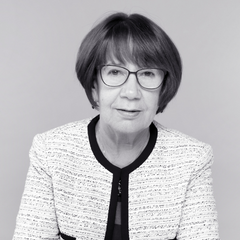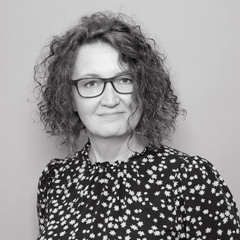Gastroscopy
Look for appointment timesGastroscopy is an endoscopy of the upper gastrointestinal tract that allows a physician to examine the oesophagus, stomach and duodenum using a flexible tubular optical instrument (endoscope). This procedure can help find out the cause of complaints (such as abdominal pain, nausea, vomiting, difficulties swallowing) and detect visible changes in the oesophagus, stomach or duodenum. During a gastroscopy, it is possible to collect tissue samples (biopsies), if necessary, which can then be examined under a microscope.
Frequently asked questions
- For gastroscopy, the stomach must be empty, so do not eat, drink or smoke for six hours before the examination. However, the medication you take on a daily basis should still be taken with a little bit of water!
- Removable dentures, tongue and lip rings, etc. must be removed before the examination.
- Be sure to tell your physician about any blood thinners you are taking before the test (e.g. Xarelto, Marevan, Plavix) to minimise the risk of bleeding.
- If possible, take a list of your medication and doses with you to the procedure.
- If you are on Marevan, tell your physician the last INR value and the date it was measured.
Prior to the procedure, the pharynx is usually anaesthetised with lidocaine if there is no allergy to it. In order to perform the procedure, you will have to lie on your left side. The endoscope is inserted orally into the oesophagus, stomach and duodenum and by dilating these organs with air, pathological changes can be found. The examination usually lasts around five minutes and is not painful. Collecting possible biopsies is also not painful. However, the procedure can be uncomfortable. Focusing on breathing deeply and calmly will help you better tolerate the procedure. Also, try to avoid swallowing unless your physician tells you to. There may be discomfort in the upper abdomen and a feeling of throwing up during the procedure. As the stomach is empty, there is no need to worry about vomiting. You may also feel throat discomfort during the procedure, but your airways are clear and there is no obstruction to your breathing.
If necessary, with prior agreement, the procedure can be performed under general anaesthesia. In this case, the anaesthesiologist will inject you with a sedative medication before the examination. If the procedure is performed under anaesthesia, please familiarise yourself with the anaesthesia leaflet in advance. It is usually is sent to you with the booking confirmation letter.
If the examination is performed under anaesthesia, the patient will remain in the day care ward for observation for at least one hour. You should not drive a car on the same day, as the strong sedative given to you will significantly reduce your reaction speed. It is a good idea to bring an escort to the examination who will take care of your departure home. If you come to the procedure alone, order a taxi to take you home.
- You may experience a slight sore throat and a feeling of fullness due to the introduction of air into the stomach. Complaints usually go away within a few hours. Unless your physician tells you otherwise or your throat was not anesthetised with lidocaine, you are allowed to eat and drink immediately after the procedure. If ‘throat anaesthesia’ with lidocaine was used, you should wait until the effect of the drug has worn off to prevent aspiration of fluids and food into the respiratory tract. This usually takes around 20-30 minutes.
- If the procedure was performed under general anaesthesia, you may feel drowsy under the influence of anaesthetics after the procedure and will need to be under medical supervision for around 90 minutes. On the same day, you are not advised to drive, use complex machines or tools or make important decisions (sign legal documents etc.).
Gastroscopy is a relatively safe procedure, complications are rare and may include the following:
- Bleeding after sampling is usually minimal and does not require blood transfusions or surgery.
- Perforation of the oesophagus, stomach or duodenum is a very rare complication that requires surgical treatment.
If you have any further questions about gastroscopy, ask your physician or a nurse. If you experience severe abdominal pain or bleeding after the examination, call 112 immediately or go to the emergency department of the nearest hospital.
The treating physician can refer the patient to a gastroscopy examination.
Price
Gastroenterologist consultation
Gastroscopy
Gastroscopy under anesthesia
Gastroscopy and colonoscopy
Gastroscopy under general anaesthesia (Tartu)
Gastroscopy and colonoscopy under general anaesthesia (Tartu)
We have several payment options. Read more HERE.
BOOKING
We provide this service
Gastroscopy





